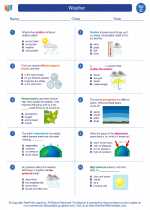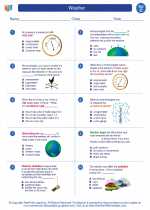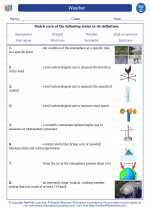Parasitism
Parasitism is a type of symbiotic relationship in which one organism, the parasite, benefits at the expense of the other organism, the host. The parasite derives its nourishment and shelter from the host, which may suffer harm as a result.
Key Points to Remember:
- Parasitism is a type of symbiotic relationship where one organism benefits at the expense of the other.
- The organism that benefits is called the parasite, while the organism that suffers is called the host.
- Parasites can be found in various forms, including protozoa, helminths, and arthropods.
- Parasites can cause a range of effects on the host, from mild irritation to severe disease and even death.
Examples of Parasitism:
There are many examples of parasitism in nature. Some common examples include:
- Tapeworms living in the intestines of their host animal and deriving nutrients from the host's food.
- Mosquitoes feeding on the blood of animals, including humans, for their own nourishment.
- Parasitic plants, such as mistletoe, obtaining water and nutrients from the host plant.
- Fleas living on the fur of animals and feeding on their blood.
Study Guide:
Here are some key points to include in your study of parasitism:
- Define parasitism and explain the roles of the parasite and the host.
- Describe different forms of parasites, such as protozoa, helminths, and arthropods.
- Discuss the effects of parasitism on the host, including potential harm and diseases caused by parasites.
- Research and present specific examples of parasitism in nature, including parasites and their hosts.
- Explain the importance of understanding parasitism in fields such as medicine, ecology, and agriculture.
By understanding the concept of parasitism and its role in nature, you can gain valuable insights into the intricate relationships between different organisms and the impact of these relationships on ecosystems and human health.
.◂Science Worksheets and Study Guides Third Grade. Weather
Study Guide Weather
Weather  Worksheet/Answer key
Worksheet/Answer key Weather
Weather  Worksheet/Answer key
Worksheet/Answer key Weather
Weather  Worksheet/Answer key
Worksheet/Answer key Weather
Weather  Vocabulary/Answer key
Vocabulary/Answer key Weather
Weather  Vocabulary/Answer key
Vocabulary/Answer key Weather
Weather 

 Worksheet/Answer key
Worksheet/Answer key
 Worksheet/Answer key
Worksheet/Answer key
 Worksheet/Answer key
Worksheet/Answer key
 Vocabulary/Answer key
Vocabulary/Answer key
 Vocabulary/Answer key
Vocabulary/Answer key

The resources above cover the following skills:
EARTH AND SPACE SCIENCE (NGSS)
Earth’s Systems
Students who demonstrate understanding can:
Represent data in tables and graphical displays to describe typical weather conditions expected during a particular season.